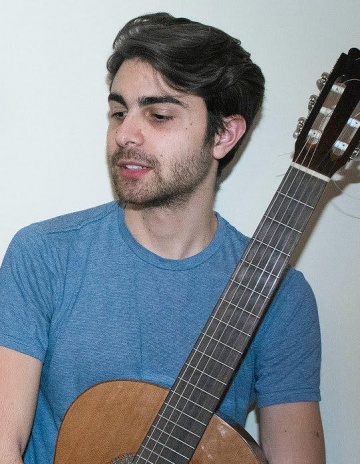Columbia College | Columbia University in the City of New York
“A Soundtrack of Arab Identity” by Daniel Lazour ’16
Amidst the clutter of my grandfather’s office sits an ancient iPod connected to an ancient pair of speakers. His library of 500 or so songs can be divided into three categories: Haitian music, French chanson, and salsa and merengue. Musical taste reflects our experiences, and Pappy Felix is no exception. He and my grandmother were born and raised in Aux Cayes, Haiti, which explains the kompa, twoubadou and rara. Singers Charles Aznavour and Edith Piaf are Mona’s — my grandmother — favorites, so they became for my grandfather the sound of lifelong devotion. In the ’50s, Felix worked as a dance instructor in Miami, teaching a generation of Americans hopped up on Latin grooves. Now he sits in his office, throws his iPod on shuffle and sways to the soundtrack of his life.
There are, however, a handful of tracks — 20, maybe — that do not fit into these three categories. They are songs of Fairuz and Oum Kalsoum, the fêted divas of Lebanon and Egypt, respectively, and arguably the two most influential singers in Arabic music. Although Haitian by nationality, Felix and Mona are ethnically Lebanese. Their parents — my great grandparents — left French-occupied Lebanon in the early 20th century to make a new life in the French Caribbean with the hopes of gaining a foothold in the burgeoning textile industry on the island. During the subsequent decades, Muslim and Maronite Christian Arabs became a significant minority in Haiti, learning the vernacular, baking kibbeh and doing business.
These Arabic tracks in my grandfather’s library can be traced back to his childhood, when he spoke with his father and sister in Arabic that has since been replaced mostly by Haitian Kreyol. I believe he plays this music less out of willfulness and more out of an internalized obligation to keep the sounds of the Arab world in his ears and in the family.

The author, director Taibi Magar and Patrick Lazour at A.R.T.
GRETJEN HELENE
At the outset of the project, I was concerned that the score would only represent my Western-cultivated musical sensibility. My taste then was primarily for classical music and musical theater cast recordings. But what at first was an appreciation for the music that played in my wispy childhood memories has developed into a full-blown love affair. I remember distinctly when I made my first playlist of Arabic music in freshman year, asking Pappy Felix for the titles of those Fairuz and Oum Kalsoum songs. Since then my list of favorites has expanded to hundreds of Arab artists, past and present. Singers like Sheikh Imam and Emel Mathlouthi and Ramy Essam have underscored a large portion of my life. This music has become a part of my experience — connected to real people, real stories and real emotions. Arabic music is part of my musical palette now. The tablas and the oud that are woven into the score of We Live in Cairo are not meant to signal some distant land but rather are there to evoke an identity my brother and I are getting closer to.
We Live in Cairo will premiere at the American Repertory Theater in May. I hope that the voice of the Arab world in its diaspora is strong and affecting, and that when Pappy Felix and Mommy Mona come up — God willing — to see it, they can hear themselves in the voices of young Arab artists telling a remarkable story.


